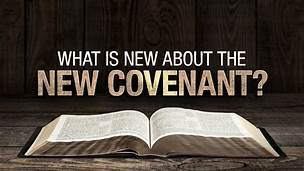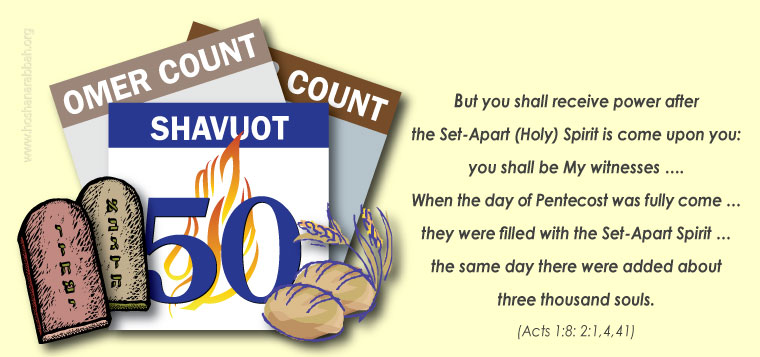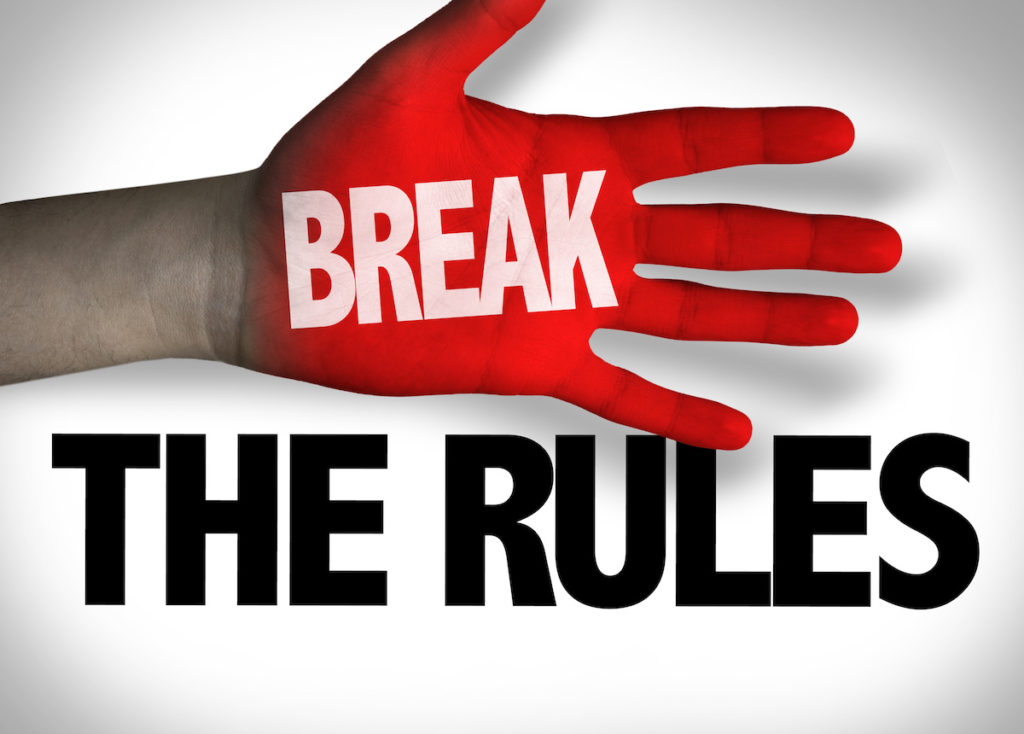Tag Archives: New Covenant
The Plain Truth About the New Covenant

Hebrews 8
Hebrews 8:2, 5, The true tabernacle…heavenly things. The Tabernacle of Moses was merely an earthly or physical replica of the one that exists in heaven where Yeshua is no ministering as our Great High Priest before the throne of YHVH Elohim the Father (see Heb 9:11, 23–24; Rev 8:3–5; 9:13; 14:17, 18; 16:7, 17; 11:19; 15:5, 6).
Hebrews 8:6, Better covenant … better promises. (See Heb 9:11–15.) In the Greek, the word better is kreitton meaning “more useful, more serviceable, more advantageous, more excellent.” The Renewed Covenant is a better covenant for the reasons discussed in the notes in verse eight. In 2 Cor 3:7 calls it “the ministry of the Spirit” and refers to it as “more glorious” than the former covenant. The Renewed Covenant comes with Yeshua’s promise that from within our heart the Set-Apart Spirit will empower and lead us into all truth. Moreover, under the Renewed Covenant, the promise of salvation resulting in eternal life in the kingdom of Elohim is spelled out more clearly. The Renewed Covenant also carries with it relief from the penalty of the law, which is death, for those who put their faith in Yeshua’s atoning and substitutionary death (see notes at 2 Cor 3:7). Through the Spirit and blood of Yeshua, one’s sin conscience is now cleansed in that the guilt from sin is removed (Heb 9:14). Also, as discussed in the verse eight notes, the covenant (or contract) is the actual agreement between two parties. The terms and conditions of a covenant (or contract) are something else. Torah was the terms and conditions of YHVH’s agreement between himself and his people. When the author here uses phrase like “better covenant,” this in no way implies that the Torah has been abrogated. If this were true, then this flies in the face of what is said elsewhere in the Testimony of Yeshua to the contrary (e.g. Matt 5:17–19; Acts 21:24; 24:14; 25:8; Rom 3:31; 7:14; 1 John 2: 3–6; 3:4; Rev 12:17; 14:17; 22:14).
Hebrews 8:8, Finding fault with them. What was the fault of the first covenant? The Torah-law of Elohim, or the people who failed to abide by the terms of the covenant, i.e, the Torah? The next verse gives us the answer: “because they continued not in my covenant…” The Israelites were at fault.
YHVH gave Israel his Torah-laws (or instructions in righteousness) to teach them how to love him and to love their neighbors (Mark 12:29–31). If they followed his Torah-instructions, he promised to bless them (Deut 28:1–14), and declared that all would go well with them (Deut 4:30). Of course, we know the sad history of ancient Israel and how they rebelled against YHVH again and again. There was nothing wrong with his Torah laws, which said, you shall not murder, steal, commit adultery, lie, covet, kidnap, commit homosexuality or incest, worship false gods, take YHVH’s name in vain, keep his Sabbaths, don’t practice divination, honor your parents and so on. What’s wrong with these? Nothing. The fault was with the people who failed to abide by these standards of righteousness, and this is exactly what the author of Hebrews is saying here. Because the people broke their contractual or covenantal agreement with YHVH and literally abandoned him for false gods, he was forced to make a new covenant with other people who would have the heart and love and obey him. This is exactly what Jeremiah prophesied would occur, and the writer of Hebrews is simply quoting Jeremiah in this passage. What is the main difference between the first and second covenants? As the Israelites of old didn’t have the heart to obey YHVH because of the hardness (or carnality) of their hearts (Heb 3:8, 15; 4:2, 7), YHVH promised through Jeremiah to renew his covenant with the descendants of the ancient Israelites (i.e. the house of Israel and the house of Judah, Jer 31:31; Heb 8:8), but this time, by his Spirit, he would write his Torah-laws on their hearts and in their inward parts, so they wouldn’t resist obeying him, but would desire to be pleasing in his sight. So the fault was with the hard-hearted Israelites, not with YHVH standards of righteousness called his Torah-laws!
New covenant. (For a discussion on the etymology behind the phrase new covenant see notes at Matt 26:28.)The (renewed) covenant of Jeremiah 31:31 is the same covenant to which the writer of Hebrews makes reference in Hebrews 8:7–13. From the author’s perspective, the renewed covenant isn’t fully in place yet, and the former covenant is decaying (wearing out), growing old and vanishing away (disappearing). The indication is that it has not totally gone away yet.

Yeshua initiated the renewed covenant at his last Passover supper (Luke 22:20). The renewed covenant has already been presented for believers in Yeshua, but it hasn’t been universally applied to all Israel yet. This will occur when the two houses of Israel will return to the Promised Land after they have been set free from spiritual Babylon.
YHVH’s Word tells us that no man can add or subtract from the terms of the renewed covenant (Gal 3:15). When Yeshua initiated this covenant at his Passover, the Torah was in force then, and not one jot or tittle was removed from the Torah, which are the terms of the former and renewed covenants. Any traditions that came into the Christian (Sunday, Christmas, etc.) or Jewish religious systems which are contrary to the Torah are men’s additions, and are therefore invalid.
Even as there was a gradual process of phasing in the former or first (old) covenant, the same is true of the renewed covenant. With the former covenant, the Israelites put the blood or the lamb on their door posts at Passover, prepared themselves for to meet YHVH at Mount Sinai (Exod 19), were then presented with the terms and conditions of the Sinai Covenant at Shavuot (the Feast of Weeks or Pentecost, Exod 20–23), and then the covenant was ratified (Exod 24). After that, subsequent generations of Israelites automatically entered into that covenantal agreement as they were born (Deut 29:12–15). Similarly, Yeshua initiated the renewed covenant with redeemed Israelites in his day when his blood was put on the cross at Passover, and when he wrote his Torah (the terms and conditions of the renewed covenant on their hearts by his Spirit on Pentecost. This began the process of regathering scattered and adulterous Israel back to YHVH through the blood of Yeshua the Lamb of Elohim.
Continue readingThe Abrahamic Covenant Vs. the Mosaic Covenant: Once we are saved, how are we to walk?

Romans 5:9, Being justified by his blood. Through Yeshua the Seed of Abraham through whom all nations would be blessed, believers are saved from their sins and blessed. Through Yeshua, the imputation of righteousness by faith and the justification (or right standing before Elohim) that it brings—a spiritual principle revealed in the life Abraham—is combined with the concept of being justified by his blood that is revealed in the Levitical sacrificial system.
Prophetic inferences to the sinner being atoned by the blood of an innocent and blemish-free lamb are to be found in Genesis 3:21 where YHVH covered the fallen Adam and Eve in garments of animal skins (very possibly, the skins of a lamb or some other kosher animal), and at the akeidah (the binding of Isaac) event on Mount Moriah in the substitutionary sacrifice of the lamb. This concept is further developed with YHVH’s command to the Israelites in Egypt to smear lamb’s blood on their door posts to protect them from the judgment of the death angel, and is more fully developed in the subsequent elaborate Levitical sacrificial system.
Broadly speaking, the Abrahamic Covenant and events in the life of Abraham surrounding its implementation reveal to man how to receive right-standing before Elohim, while the Mosaic Covenant and events surrounding its implementation reveal in more detail just how a man’s sins are atoned for, and then howman is to walk in righteousness once he attains right-standing with Elohim. This idea might be also stated in this way: Abraham’s being justified by his faith was a precondition to YHVH’s formulating the Abrahamic Covenant with him; Israel’s coming under the blood of the lamb, leaving Egypt and being “baptized” in the Red Sea were preconditions for YHVH formulating the Mosaic or Sinaitic Covenant with them. For the Renewed Covenant believer, Paul shows us that we must have faith in the Word (Logos) and promises of Elohim as Abraham did, and then come under the blood of the lamb, leave Egypt, be baptized and then follow Torah as the Children of Israel did to obtain and to maintain right-standing with Elohim, to be saved from the wrath to come and to have an eternal inheritance in YHVH’s kingdom.
It might be said, in a certain sense, that aspects of both the Abrahamic and Mosaic or Sinaitic covenants synergize together to construct the whole redemption or salvation “package.” In Romans, Paul weaves elements of both covenants together to form a systematic theology or a complete “package” showing the Renewed or New Covenant believer how to “get saved” and once “saved” how to stay “saved.”
Preparing for Shavuot or Pentecost

Celebrating the (Re)New(ed) Covenant Involving YHVH Writing Torah on Our Hearts
Long ago Jeremiah prophesied that YHVH would make a new (or renewed) covenant being with his people Israel, which would involve both houses of Israel (Judah and Ephraim, or, prophetically speaking, the Jews and the Christians), and that he would write his Torah on their hearts.
Behold, the days come, saith YHVH, that I will make a new covenant with the house of Israel, and with the house of Judah: Not according to the covenant that I made with their fathers in the day that I took them by the hand to bring them out of the land of Egypt; which my covenant they brake, although I was an husband unto them, saith YHVH: But this shall be the covenant that I will make with the house of Israel; After those days, saith YHVH, I will put my law in their inward parts, and write it in their hearts; and will be their Elohim, and they shall be my people. And they shall teach no more every man his neighbour, and every man his brother, saying, Know YHVH: for they shall all know me, from the least of them unto the greatest of them, saith YHVH: for I will forgive their iniquity, and I will remember their sin no more. (Jer 31:31–34)
Contextually, in the verses surrounding this prophecy, we discover some other important details.
Verse 27, The houses of Judah and Israel were to be mingled throughout the beast (heathen) nations of the world as punishment for breaking their covenant with YHVH that they made with him on Shavuot (the Feast of Pentecost) at Mount Sinai (Exod 19–20, 24).
Verse 28, At some point in the future, YHVH’s punishment of Israel for breaking their covenant and their resulting exile among the gentile nations will come to the end. He will rebuild and restore the nation of Israel.
Verses 29–30, Whereas in times past, Israel was punished as a collective nation for their sins when they disobeyed YHVH and were similarly blessed when they obeyed him, now each person will be cursed or blessed for his own sins. Salvation is more of an individual matter now.
Verses 31–33, YHVH promises to make a renewed covenant with the two houses of Israel at some time in the future (from Jeremiah’s perspective). It will be different from the covenant he made with Israel at Sinai in two major ways:
- Though it will be a covenant with Israel collectively (both houses), it also will be made with individuals.
- He will deal with the heart of each individual Israelite when he writes his Torah on their hearts.
Verse 34, This renewed covenant will involve mercy and forgiveness (grace). It will involve a personal relationship between each person and YHVH (“they shall all know me…”).
Verses 35 and 37, As the sun, moon, stars, the sea, and expanse of the heavens and the earth exist, so YHVH will renew his Torah covenant with Israel. The words of Yeshua in Matthew 5:18 are reminiscent of the this prophecy. Not one jot or tittle (Heb. yud or tag, which are the smallest elements of the Hebrew alphabet) of YHVH’s Torah will pass as long heaven and earth still exist.
Verse 36, The very survival of the nation and people of Israel (and hence the fulfillment of the covenants YHVH made with Abraham), is dependent on YHVH regathering and restoring Israel. If YHVH doesn’t bring this to pass, then YHVH is a liar and his Word is a lie and there is no hope for the world! This cannot be!
This was fulfilled during the time of the writing of the Testimony of Yeshua (New Testament). The author of Hebrews talks about this in Hebrews 8.
But now, Yeshua the Messiah has attained a more excellent public service, since He is the Mediator of a more excellent covenant, one that was legislated with better promises than the former. (Heb 8:6)
The “better promises” is everything that Yeshua taught about salvation and eternal life as a person puts their trust in him. These better promises he taught during his life and ministry, and formalized this at his last supper through the communion elements. It is all these glorious promises to which the whole Levitical and sacrificial system pointed, which, as the author of Hebrews makes clear, was fulfilled in Yeshua.
If the first covenant had been faultless, there would have been no need to look for a second one. Finding fault with THEM He said, “Look, the days are coming, says Yehovah, when I’ll enact a New Covenant with the descendants of Israel, and with the descendants of Judah. It wont be like the covenant that I made with their ancestors during the time when I took them by the hand and brought them out of the land of Egypt, because they didnt remain loyal to My covenant, and I rejected them, declared Yehovah. But this is the covenant that I’ll enter into with the descendants of Israel after that time, says Yehovah; I’ll put My Torah in their minds—inscribing it on their innermost thoughts. I’ll be their Aloha, and they’ll be My people. No one will teach doctrine to their fellow citizens [evangelize], or a friend, or ask: “Do you know Yehovah” [witness to anyone], because they’ll all know Me, from the youngest of them to the oldest. I’ll be merciful regarding their wrongful behavior; and I’ll no longer remember their sins.” When He [Yeshua] mentioned, a New Covenant, He was saying that the first one was old and about to be repealed; and what was then old and failing, was about to disappear. (Heb 8:7–13, GV)
Other Scriptures Relating to the Renewed Covenant and the Heart of Man
The Tanakh is full of scriptures that speak of the renewed covenant where YHVH will write his Torah on the hearts of men. For example, in Jeremiah 32:40, YHVH reiterates his promise to make an everlasting promise with Israel. This new covenant will involve his putting his fear in their hearts. As a result, they will no longer depart from him.
Continue readingHas the Torah been “done away with”? — Hebrews 8 explained

I just received this comment from a Christian minister who is well known in certain circles and who, over the decades, has done commendable work in opposing wickedness and promoting righteousness in America.
You’re a good advocate for your own perspective, and have provided a great historical outline on the rise of Hellenic thinking in the church. I’ll use some of this in my debates with Roman Catholics. BUT this is not (as you laudably acknowledge) objective scholarship on the question of keeping the Torah. You have entirely avoided Hebrews as a source, which is arguably the most relevant to this topic of all the Epistles. Your thesis is directly challenged by Hebrews 8, for example. In my view, keeping the law voluntarily is a matter of personal liberty, and some people benefit from maximum structure in their lives, and for all believers there is great benefit from knowing and being influenced by the Torah. But leading people back under the Mosaic law as an obligation IS Judaizing — a term that (as used today) defines a concept with much broader Scriptural support than you admit.
Here is my initial response to to Scott’s comment:
Well hello Scott! Welcome to my blog. I followed your and Lon’s ministry for years when you lived in Oregon, and even met you once decades ago when your office was located in my hometown, and I have appreciated your bold stand in your fight against abortion and the homosexual agenda.
With regard to my article to which you make reference, no, I didn’t cover Hebrews 8 in this particular piece. As a writer, you well know that it’s not possible to cover every facet of every topic including all of the relevant Scriptures on any biblical subject in one article, otherwise the article would be a long book and not an article. I cover Hebrews, Galatians, Romans and everything other scriptural passage in the Bible on the subject of the Torah in many of the 500 some videos on my You Tube channel, some 100 articles on our website and some 2000 articles on this blog.
Moreover, what you call Judaizing I call righteous obedience to the immutable commandments of YHVH Elohim. Judaizing is a term, as you know, that goes back to a Greek word in the NT. However, the early church fathers grossly misunderstood the writings of Paul (largely thanks to the influence of Marcion the heretic who was an anti-Jewish Torah-hater), even as Peter admits in his second epistle was occurring in his day. For Paul, Judaizing WAS NOT obedience to the Torah, or else all of Paul’s pro-Torah statements are nonsensical and contradictory. No, rather for Paul, Judaising was saying that obedience to Torah was mandatory as a requirement for salvation. This was the main thesis of the book of Galatians and the subject of the first Jerusalem Council in Acts 15. However, once saved according to the whole council of Scripture, one is duty bound to follow the Torah, which tells us how, as Paul states in Romans 13, how to fulfill the Torah, and as Yeshua states in the Gospels, how to love Elohim and our neighbor. Following the Torah is simply the fruit of the Spirit, while disobedience to it is the works of the flesh as Paul outlines in Galatians five. You see, Scott, you, to your credit, already follow much of YHVH’s Torah law. You don’t steal, murder, commit adultery, lie, covet, worship idols and so on. Where most people have a problem is with the Sabbath, biblical feasts and biblical dietary laws. These last three were the first biblical commands the ante-Nicene church fathers jettisoned because they were “too Jewish,” and the church has followed their errant ways ever since. If obeying YHVH’s Torah is Judaizing as you say, then so is not stealing, lying, coveting, murdering, etc. It’s simple logic. As James indicates, the YHVH’s Torah-laws all stand and fall together (Jas 2:10). As John states in chapter three of his first epistle, the Torah defines what sin is. So how can not sinning be a bad thing? Beyond this, to take a pick and choose approach to Torah-obedience is to follow the lie of the serpent at the tree of knowledge and to question Elohim as to what he has told us to do and to determine for ourselves what aspects of Elohim’s Word are valid and relevant for us or not. This, as Francis Schaeffer defines it, is the basis for the modern concept of secular humanism.
With regard to Hebrews chapter eight, I have addressed this chapter in my other writings, and I will do so again for your benefit on my blog right now. I invite you to go to it where you will find my response to your kind protestation.
Blessings and thank you for you comments. It has allowed me the occasion to deal with issues that keep needing to be addressed due to the misunderstandings of Scripture in mainstream, traditional Christianity.

From Natan Lawrence’s commentary on the Bible
Hebrews 8:6, Better covenant … better promises. (See Heb 9:11–15.) In the Greek, the word better is kreitton meaning “more useful, more serviceable, more advantageous, more excellent.” The Renewed Covenant is a better covenant for the reasons discussed in the notes in verse eight. In 2 Cor 3:7 calls it “the ministry of the Spirit” and refers to it as “more glorious” than the former covenant. The Renewed Covenant comes with Yeshua’s promise that from within our heart the Set-Apart Spirit will empower and lead us into all truth. Moreover, under the Renewed Covenant, the promise of salvation resulting in eternal life in the kingdom of Elohim is spelled out more clearly. The Renewed Covenant also carries with it relief from the penalty of the law, which is death, for those who put their faith in Yeshua’s atoning and substitutionary death (see notes at 2 Cor 3:7). Through the Spirit and blood of Yeshua, one’s sin conscience is now cleansed in that the guilt from sin is removed (Heb 9:14). Also, as discussed in the verse eight notes, the covenant (or contract) is the actual agreement between two parties. The terms and conditions of a covenant (or contract) are something else. Torah was the terms and conditions of YHVH’s agreement between himself and his people. When the author here uses phrase like “better covenant,” this in no way implies that the Torah has been abrogated. If this were true, then this flies in the face of what is said elsewhere in the Testimony of Yeshua to the contrary (e.g. Matt 5:17–19; Acts 21:24; 24:14; 25:8; Rom 3:31; 7:14; 1 John 2: 3–6; 3:4; Rev 12:17; 14:17; 22:14).
Hebrews 8:8, Finding fault with them. What was the fault of the first covenant? The Torah-law of Elohim, or the people who failed to abide by the terms of the covenant, i.e, the Torah? The next verse gives us the answer: “because they continued not in my covenant…” The Israelites were at fault.
Continue reading





